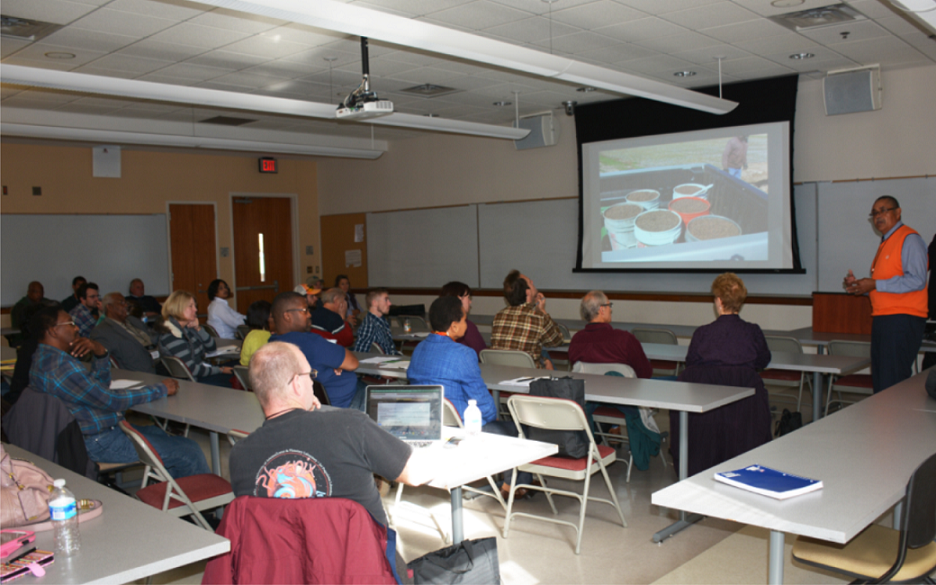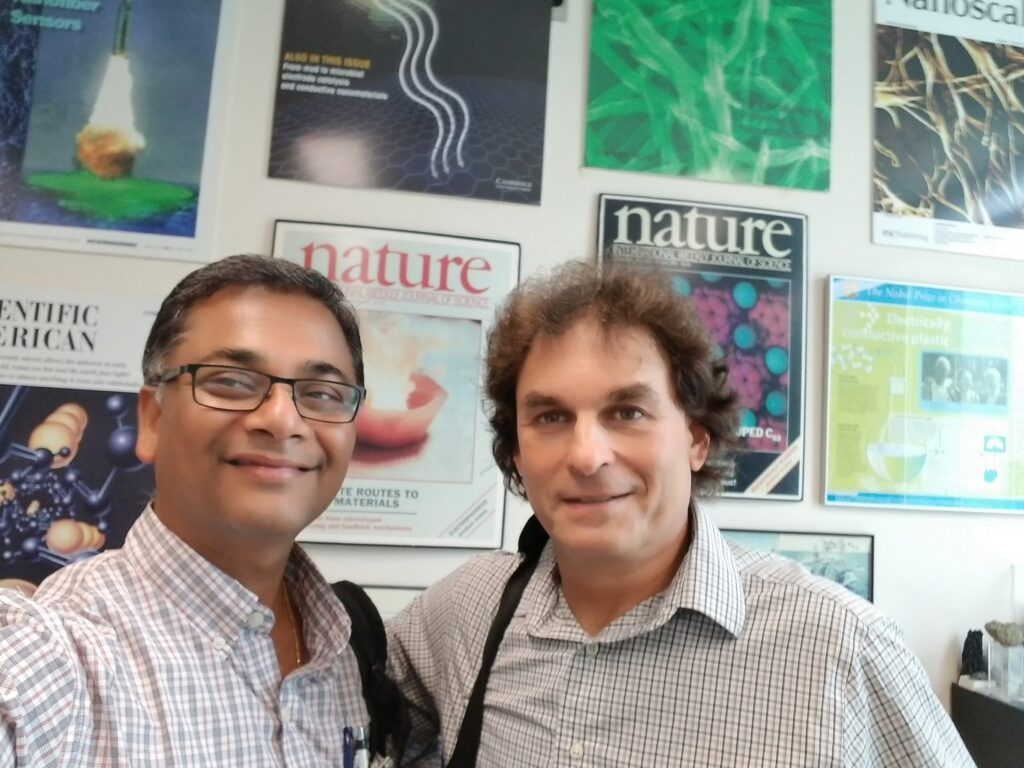
“You are my hero by bringing frontier research to student experiments!”
Those words, written by Dr. Ray Baughman in a brief email, were directed to Dr. Kausiksankar Das, who recently presented his research findings at two international conferences . . . one at the Advanced Functional Materials Conference in Washington, D.C. and the other at the Functional Materials Conference at the University of California, Los Angeles.
At UMES, Das teaches physics courses and is especially devoted to teaching undergraduate students how to conduct high quality, cutting edge research. Said Baughman, an editor of the journal Science and a distinguished professor at the University of Texas, “I am very impressed with Professor Das because of his enthusiasm in bringing science in novel ways to young people. His online videos are so attractive, showing plasma made using simple household items, for example. They all show very simple configurations of household devices to teach very young people that science is approachable, enjoyable, thrilling.”
Baughman further stated that Das is able to communicate a “deep understanding of science and is innovative in showing how to accomplish complex science in simple ways,” while recounting that in high school he was able to get a job at the University of Pittsburg because of Dr. George Jeffery, someone in his life who was like Das. It was a “life changing experience” that inspired him to create the George A Jeffrey NanoExplorers Program in honor of the structural crystallographer following his death in 2000 at the age of 84 from Lou Gehrig’s disease.
Since 2002, Baughman has had hundreds of students successfully navigated the NanoExplorers program, which promotes nanotechnology based education for high school students entering the 10th-12th grades.

Das received the same type of response from UCLA’s Dr. Ric Kaner, with whom he interacted during both conferences. Kaner was particularly impressed with the research Das presented on laser scribed graphene nano inductors.
“It’s very exciting work and follows up on some things we have done,” said Kaner. “And I think it’s fantastic that he can do this while working mainly with undergraduates. He has really contributed a lot to the field and the development of different students.”
Both Baughman and Kaner are pioneers in carbon nanotube and graphene research.
Das’ teaching and research are supported by the National Science Foundation (HBCU-UP Award #1719425), the Department of Education (MSEIP Award #P120A70068) with a MSEIP CCEM grant, and the Maryland Technology Enterprise Institute through a MIPS grant.

